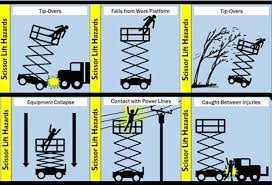Alzheimer’s Care Facilities – What To Consider When Choosing One For Your Loved One
Alzheimer’s, also known as dementia, is a progressive and irreversible brain disorder that leads to memory loss and inability to control behavior. This can have a profound effect on the individual’s family and loved ones. The article tells you what to consider when choosing an Alzheimer’s care facility for your loved one, such as location and cost.
When considering an Alzheimer’s care facility for a loved one, it is important to consider a number of factors. Some factors to consider when selecting an Alzheimer’s care facility are:
Home Location and Accessibility:
Before making a decision about where to send your loved one with dementia, it is important to consider their living situation and access to transportation. If they live in a home that is not easily accessible by car or public transit, they may need to be moved into a facility that is more accessible.
Staff Experience With Dementia-Related Care:
It is also important to choose a facility staffed by caregivers who are experienced in caring for people with dementia. Staff members at an Alzheimer’s care facility should have completed training on how to administer medications and manage behavior.
Type of Dementia:
Each person with dementia experiences the disease differently, which means that not all facilities offer the same services. Some facilities specialize in providing care for patients with Alzheimer’s disease only, while others offer care for patients with other forms of dementia as well.
Facility Amenities and Services:
Many facilities offer activities such as art therapy or music therapy that can be beneficial for residents with dementia. Additionally, many provide 24-hour support staff who can help residents with daily tasks such as bathing and toileting.
Cost:
It is important to factor in the cost of care before making a decision about where to send a loved one with dementia. Many Alzheimer’s care facilities offer discounts for seniors or veterans, and many also offer payment plans.
Types of Alzheimer’s Care Facilities
Nursing Home Settings:
Nursing homes often offer the best overall care for people with Alzheimer’s, as they have the capacity to provide round-the-clock assistance. However, nursing homes can be quite expensive, and some residents may not enjoy the environment or feel like they’re receiving proper care.
Memory Care Facilities:
Memory care facilities are generally less expensive than nursing homes and can provide more personalized care for patients with Alzheimer’s. However, these facilities may not have the capacity to provide round-the-clock support, and some residents may find them too quiet or restrictive.
Assisted Living Facilities:
Assisted living facilities typically offer a combination of services such as memory care, daycare, and housekeeping from staff who are specially trained in caring for elderly residents with dementia. While assisted living facilities can be relatively affordable, they may not have all the amenities offered at a nursing home or memory care facility.
Respite Care Facilities:
Respite care is a type of housing specifically designed to temporarily house an elderly person who needs respite from their regular live situation but does not require full-time residential care. Many families choose respite care when looking for Alzheimer’s care because it’s typically less expensive than other types of care and allows the resident to stay in their own home while receiving assistance.
Local Dementia Services:
Some people with Alzheimer’s may prefer to live in their own homes but receive assistance from a professional caregiver on a regular basis. These individuals may find the best care in a local dementia services facility, which is typically staffed by specially trained professionals.





